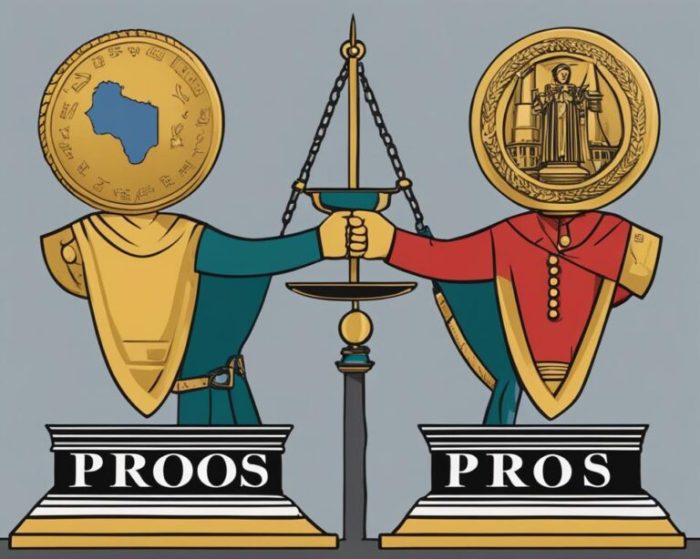The topic of pros and cons about dictatorship has garnered significant attention, prompting this comprehensive analysis that delves into the intricacies of authoritarian rule. This discourse aims to provide a nuanced understanding of the advantages and disadvantages associated with dictatorships, shedding light on their impact on political control, economic stability, social order, human rights, and international relations.
Throughout this exploration, we will examine the centralized authority and decision-making processes characteristic of dictatorships, while also scrutinizing the limitations on political participation and suppression of dissent that often accompany them. Furthermore, we will investigate how dictatorships can foster economic stability and growth, while acknowledging the potential drawbacks of policies that prioritize growth over social welfare.
Political Control and Power

Dictatorships offer advantages in political control and power. Centralized authority enables swift decision-making, ensuring rapid implementation of policies. However, this concentration of power often results in limited political participation and suppression of dissent, leading to a lack of accountability and transparency.
Economic Stability and Growth
Dictatorships can foster economic stability and growth by implementing infrastructure projects and promoting investment. However, the prioritization of growth over social welfare may result in income inequality and neglect of basic needs.
Social Order and Security
Dictatorships maintain social order through strict laws and surveillance, ensuring a low crime rate and a sense of security. However, this emphasis on control often infringes on individual freedoms and privacy.
Human Rights and Civil Liberties, Pros and cons about dictatorship
Dictatorships typically suppress human rights and civil liberties, restricting freedom of expression, assembly, and religion. This authoritarian rule can have severe consequences for society, leading to fear, self-censorship, and a lack of intellectual progress.
International Relations
Dictatorships can have a significant impact on international relations. They may form alliances with other authoritarian regimes, potentially leading to conflicts. Moreover, non-democratic regimes can pose challenges to diplomacy and cooperation, as their interests and values often diverge from those of democratic nations.
Quick FAQs: Pros And Cons About Dictatorship
What are the primary advantages of dictatorships?
Dictatorships can offer centralized authority and decision-making, potentially leading to swift implementation of policies and economic stability.
How do dictatorships impact human rights?
Dictatorships often suppress human rights and civil liberties, restricting freedom of expression, assembly, and political participation.
Can dictatorships promote economic growth?
While dictatorships may prioritize economic growth, this can come at the expense of social welfare and environmental sustainability.
